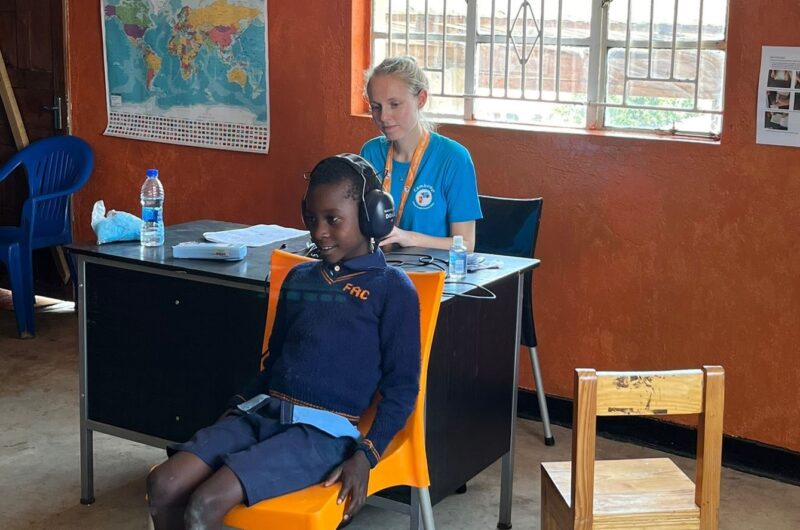Charlotte Skipper is a Specialist Audiologist at Cambridge University Hospital NHS Foundation Trust (CUH). She used a CGHP grant to help fund a visit to Malawi as part of a multi-disciplinary team to support the delivery of ear and hearing healthcare to rural communities. Here she explains more about the visit and its impact.
“The Malawi Hearing Project aims to improve access to ear and hearing care for children in Malawi, including in rural areas, and to support the provision of affordable hearing equipment – including a novel bone conduction hearing device. It is a partnership that incorporates Audiology and ENT services in Malawi and the UK, and has the support of local NGO Anzathu which provides access to sign language and extensive local knowledge.
Getting involved in this project was an opportunity to learn from a different healthcare environment with differences in resources and clinic set up, as well as from a different culture and community.
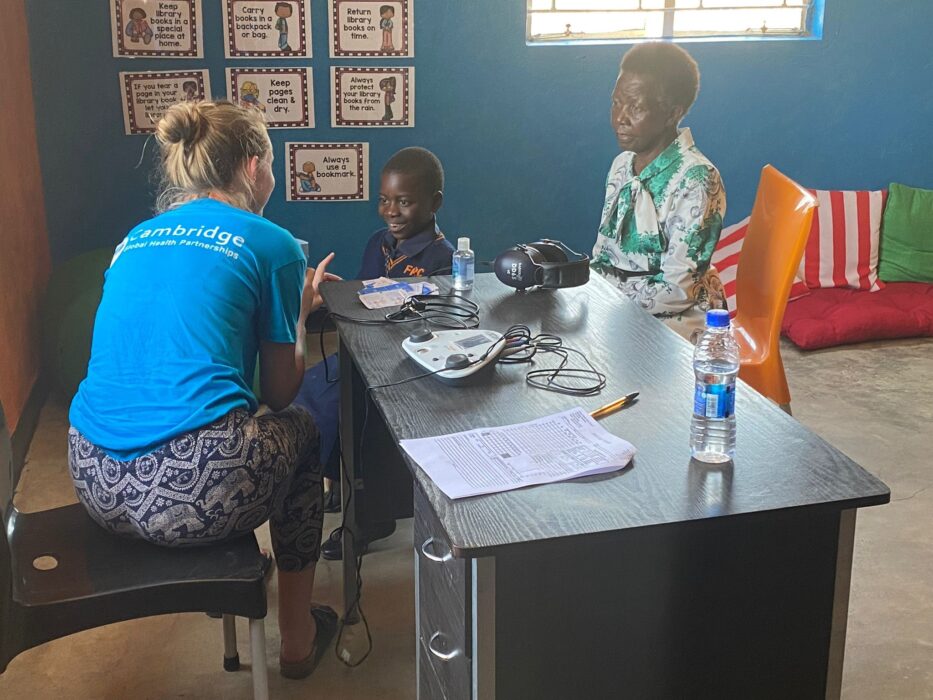
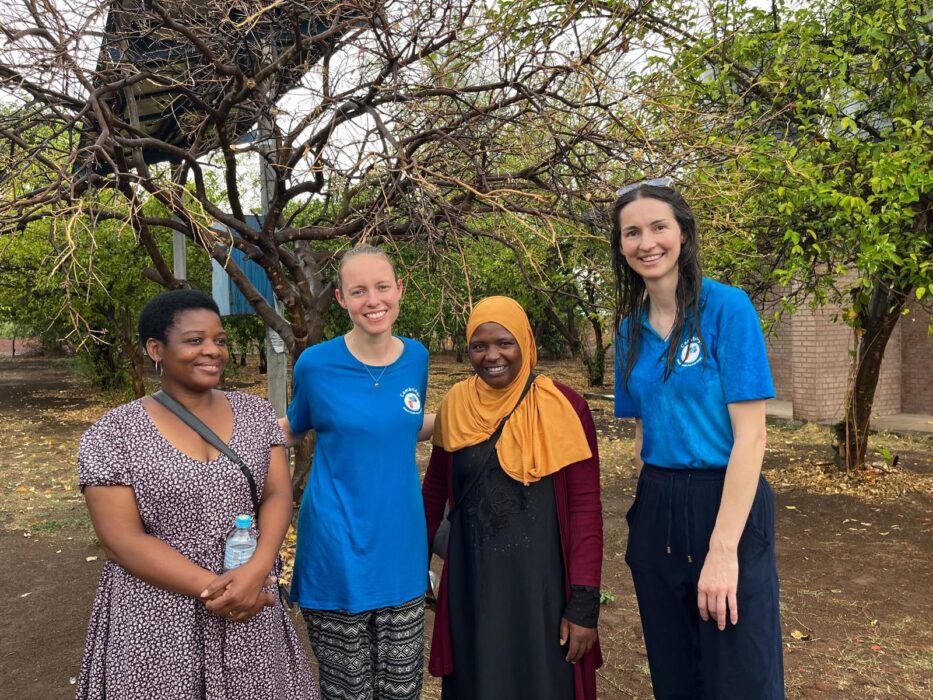
My contribution
During the week we ran ‘ear camps’ in rural areas. The ear camps were set up with ‘stations’ so patients could be triaged depending on whether they needed treatment for wax removal or ear infections, or a hearing test. I carried out hearing tests for people the ENT team identified and supported a final year trainee from our department to carry out hearing tests with me. In an environment with such high demand, we had to adapt how we normally perform audiometry, for example not testing to ‘threshold’ due to lack of sound-proofed facilities.
Once the audiometry was completed, I helped determine who would benefit from a hearing device and which type of device would be best. Once the person had been fitted with a device, I performed a very basic hearing assessment to compare hearing levels with and without, to determine the benefit.
I also worked alongside the ENT doctors to assist with otoscopy (ear examination), provided guidance on specific questions for the audiology department in Blantyre, and advised on the use of new equipment such as audiometers and handheld warbler device.
The most rewarding part was working in a team of other healthcare professionals and everyone pulling together, particularly in some challenging environments and with limited resources. It was also hugely enjoyable to work alongside the Blantyre team and learn from their expertise of healthcare in a different setting, in addition to the friendliness, assistance and support from the Anzathu team.
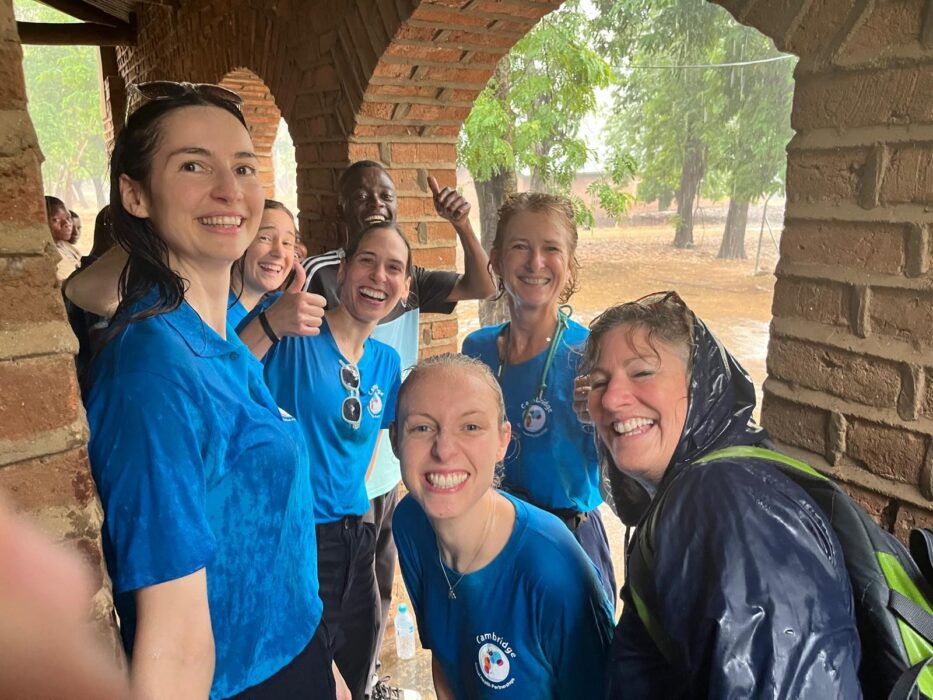
Applying expert knowledge
My presence on the trip meant that we were able to perform many more audiograms than we would have done otherwise, and I was able to use my knowledge of interpreting audiograms to advise if a hearing device would be helpful. Meanwhile the team of audiologists from Queen Elizabeth Central Hospital in Blantyre performed earwax removal, fitted hearing aids and coordinated the camps.
Our experience in performing audiometry was helpful, particularly when testing children with profound hearing losses at a Deaf school we visited. The children were told to put their hand up every time they heard a sound, but a lot of children wouldn’t have been able to hear anything with a profound hearing loss. However, a lot of them wanted to please and responded to sounds they thought they’d heard (but were unlikely to). To someone less experienced, this may have been taken as a response, however with further testing we were able to determine whether this was a genuine response or not.
The most memorable patient for me was a teenager with craniofacial abnormalities and some developmental delay. Initially I was uncertain at how well I would be able to test her, as we did not speak the same language and so I could not assess her level of understanding of the test. However, she performed a hearing test successfully and was deemed eligible for a bone conduction headset. When I saw her later to validate the device, her hearing appeared to have improved, and she could not stop smiling at how much more she was able to hear.
Personal and professional development
The experience showed me that a change in perspective or attitude can help to overcome adversity or find new ways of addressing a problem. For example, although the resources available to the Malawian team were limited, the clinicians persevered and were still able to obtain good outcomes for patients using the knowledge they had. This was exemplified by the people who travelled long distances to attend the ear camps and were still grateful for being seen, even when there was a limited amount we could help them with.
Clinically, the experience has made me think more about validating hearing devices, and if/how this could be used in the UK. There are some limitations to the bone conduction headsets, and if they come to be used more routinely in the UK, we will need to know how to assess their benefit. It has also shown me the importance of adaptability, as the audiometry we performed at the ear camps was very different to the UK, but highlighted how I could use my expertise to justify changes to practice. This skill could be applied to my paediatric practice in the UK, when a child may not cooperate with what you would normally want to do.
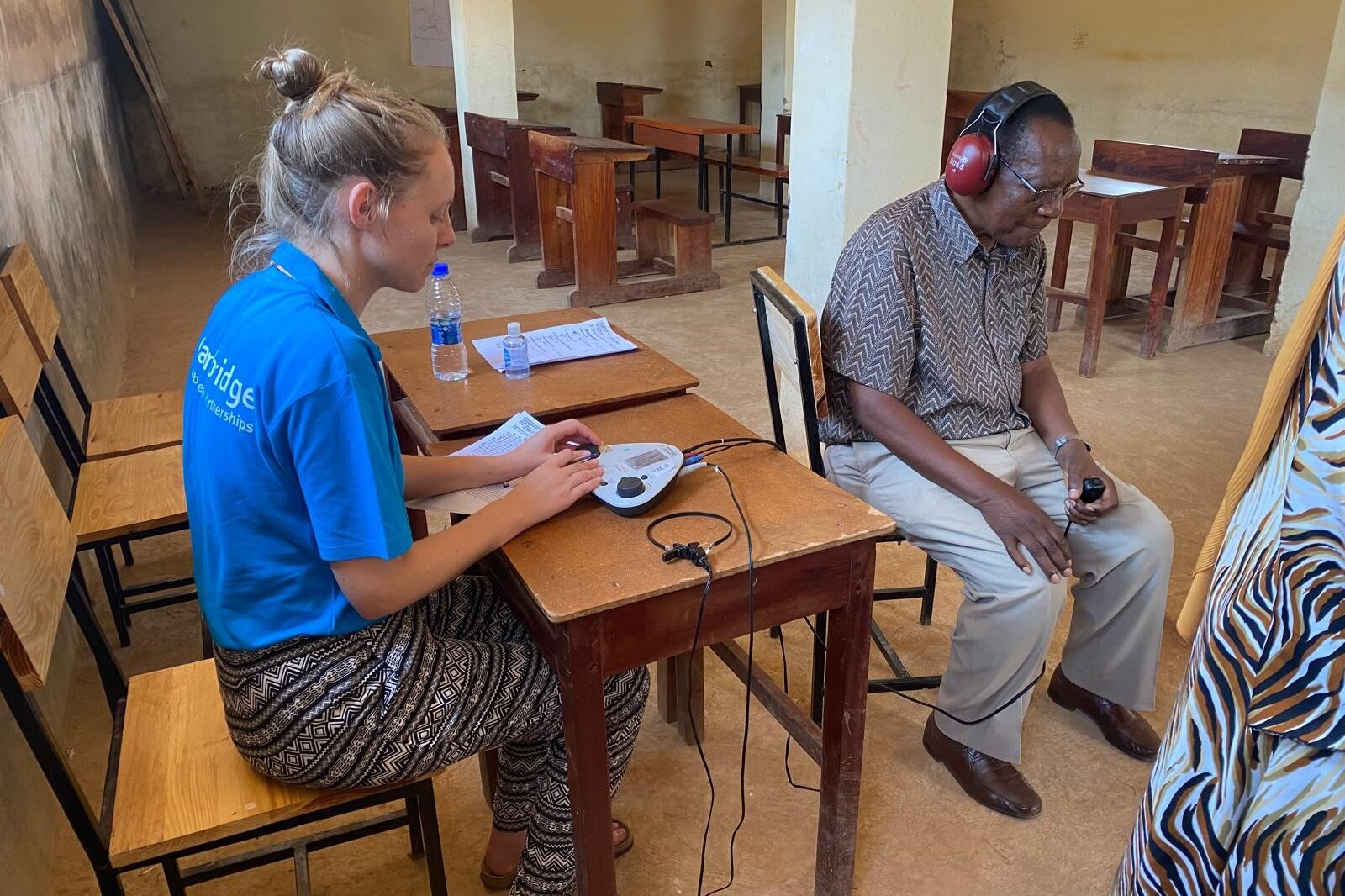
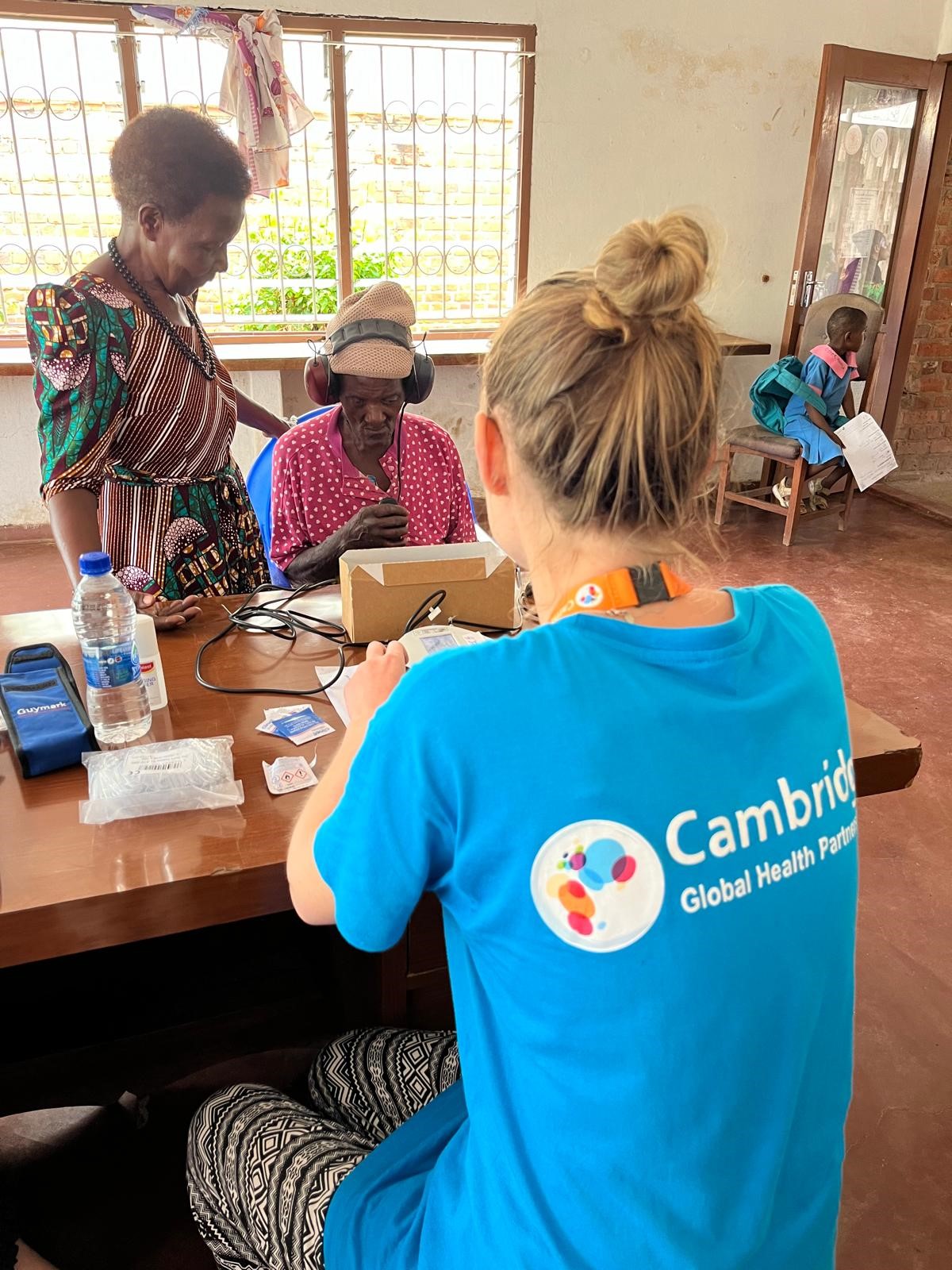
Impact of the visit
A large number of patients were provided with treatment for their ear infections and/or earwax, which will likely enable them to hear better, and help with better health of their ears. A number of hearing devices were also issued, providing better access to sound, particularly in schools where this contributes to better access to education. Some patients may also be reassured by having their hearing tested and results explained, even if there was nothing we could give to help them.
The healthcare staff were able to see many more patients than they would normally be able to, based on location and difficulty of patients travelling to Blantyre. With funding provided by CGHP, we were able to provide resources such as hearing devices, fuel for travel and equipment which would otherwise be unavailable. We were also able to provide manpower for the ear camps, and ENT expertise which is limited in Malawi (there are only two ENT doctors for the whole country).
The trip made me consider more sustainable options in the NHS. As resources are limited in Malawi, they often reuse equipment (following a cleaning process), whereas these items are often be thrown away in the UK.
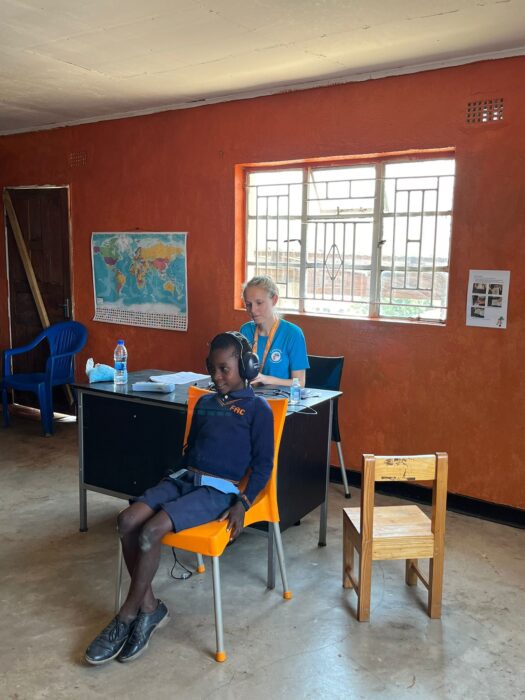
The trip made me consider more sustainable options in the NHS. As resources are limited in Malawi, they often reuse equipment (following a cleaning process), whereas these items are often be thrown away in the UK.
Specula for otoscopes, for example, are made of hard plastic and thrown away after a single use in the UK. Instead they could be sterilised, saving money on new materials and contributing to more sustainable practice. It also made me consider bone conduction device validation, and how much benefit the devices can give if they do become more readily available to patients in the UK.
I would definitely recommend global health work: it’s a chance to experience different cultures and communities but also variation in healthcare settings, working with a new team both from the UK and in the partner country.”
Find out more about the Malawi Hearing Project, the CGHP Grant Scheme or contact us at info@cghp.org.uk
Return to blogs

